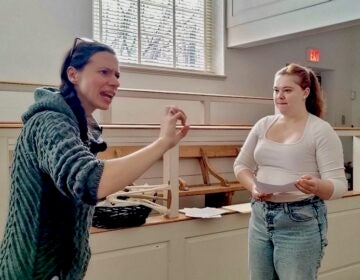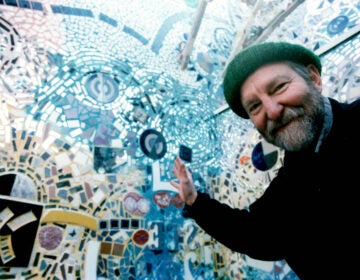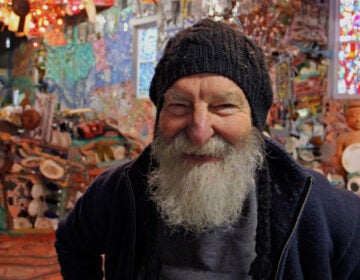‘Where’s the beat?’
Hip-hop in Philadelphia is as popular as ever, but many fans are asking, “Where’s the beat?” Finding a place to watch hip-hop artists has become difficult in the city.
Schoolly D, a Philadelphia rapper who has been credited as the progenitor of gangsta rap, released “P.S.K.” in 1986. He’s still active as a performing artist, most recently finding renewed fame with the popular television cartoon “Aqua Teen Hunger Force.”
Although he still lives in Philadelphia, he has not been going out much in the city. For the last several years, club owners have been leaning on DJs to play only the most popular tracks. Schoolly (aka Jesse Weaver) points to “Crank That” by Soulja Boy Tell’em as a prime example; it’s a song he regards with disdain.
Now, he says, local DJs are pushing back.
“I remember the good days, you made $3,500 a night for playing a couple hours,” says Schoolly. “Now, they going to pay you $35, and tell you what to play. The DJs have learned to play what they want to play. You have to be the tastemaker.”
A newer hip-hop artist called Kuf Knotz (aka Ty Green) says it’s next to impossible to find local hip-hop shows in Philadelphia.
“The foundation of hip-hop — the MC and DJ — not a lot of venues going for that,” says Kuf Knotz (pronounced “koof”). “With the stigma that hip-hop carries, the venues are like, ‘We don’t have hip-hop insurance. We can’t do a show.'”
In response, Kuf Knotz has organized a monthly club night at World Cafe Live in University City, a venue which draws audiences from Penn and Drexel.
After guest-lecturing at a class at Temple University about a (very subjective) history of hip-hop, Kuf Knotz and Schoolly D sat down together in the atrium of Annenberg Hall to discuss the local scene, and how hip-hop has to come out of the small neighborhood spots.
“We can’t sit in a place and expect people to come to us,” said Schoolly. “There’s parking, there’s murder. You know what I mean? That stigma in some of these neighborhoods –even gangsters don’t want to go there.”
“That’s the main reason I put the night together at World Cafe,” Kuf Knotz responded. “It’s a nice venue, people come.”
Both Kuf Knotz and Schoolly D say audiences at hip-hop shows in Philadelphia are now a fairly even mix of white, black and Indian fans.
Schoolly pointed to hip-hop nights at Rum Bar in Rittenhouse Square and Zee Bar on Spring Garden as good places to hear hip-hop. He also mentioned a regular Sunday matinee showcase of hardcore rap at The Fire, which he was surprised to find out is populated mostly by “12-year-old white boys.”
WHYY is your source for fact-based, in-depth journalism and information. As a nonprofit organization, we rely on financial support from readers like you. Please give today.




